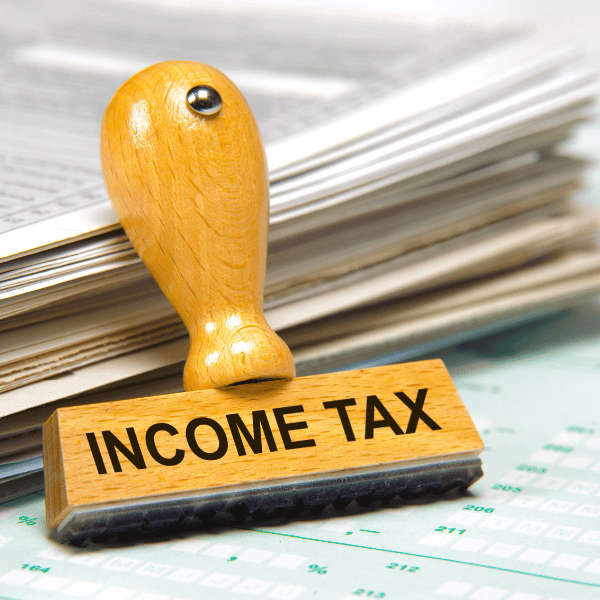
Income Tax Services
Personal Tax Filing
ITR-1
ITR-1 form can be used by Individuals who have less than Rs.50 Lakhs of annual income earned by way of salary or pension and have one house property only
ITR-2
ITR-2 form must be filed by individuals who are NRIs, Directors of Companies, shareholders of private companies or having capital gains income, income from foreign sources, two or more house property, income of more than Rs.50 lakhs.
ITR-3
ITR-3 form must be filed by individuals who are professionals or persons who are operating a proprietorship business in India.
ITR-4
ITR-4 form can be filed by taxpayers enrolled under the presumptive taxation scheme. To be enrolled for the scheme, the taxpayer must have less than Rs.2 crores of business income or less than Rs.50 lakhs of professional income.
ITR-5
ITR-5 form must be filed by partnership firms, LLPs, associations and body of individuals to report their income and computation of tax.
ITR-6
ITR-6 form must be filed by companies registered in India.
ITR-7
ITR-7 form must be filed by entities claiming exemption as charitable/religions trust, political parties, scientific research Institutions and colleges or universities.

It is mandatory for individuals, NRIs, partnership firms, LLPs, companies and Trust to file income tax returns each year. Individuals and NRIs are required to file income tax return, if their income exceeds Rs.2.5 lakhs per annum. Proprietorship firms and partnership firms are required income tax return – irrespective of amount of income or loss. All companies and LLPs are mandatorily required to file income tax return, irrespective of turnover or profit We provides income tax e-filing services with dedicated Tax Expert support. Upload your Form-16, sit back and relax. Our experts will file your income tax return and provide you the acknowledgement within 1 – 2 business days.
Penalty for Late Filing Income Tax Return
Taxpayers who do not file their income tax return on time are subject to penalty and charged an interest on the late payment of income tax. Also, the penalty for late filing income tax return on time has been increased recently. The penalty for late filing income tax return is now as follows:
- Late Filing between 1st August and 31st December – Rs.5,000
- Late Filing After 31st December – Rs.10,000
- Penalty if taxable income is less than Rs.5 lakhs – Rs.1000

Penalty for Late Filing Income Tax Return
Income Tax Return Due Date
The due date for income tax return filing is 31st July of every year for individual taxpayers. The due date for income tax return filing for companies and taxpayer requiring tax audit is 30th September. Section 44AD of the Income Tax Act deals with tax audit under Income Tax Act.
Business: In case of a business, tax audit would be required if the total sales turnover or gross receipts in the business exceeds Rs.1 crore in any previous year.
Professional: In case of a profession or professional, tax audit would be required if gross receipts in the profession exceeds Rs.50 lakhs in any of the previous year.
Presumptive Taxation Scheme: If a person is enrolled under the presumptive taxation scheme under section 44AD? and total sales or turnover is more than Rs. 2 crores, then tax audit would be required. Penalty for late filing income tax return has been increased to Rs.5000 for returns filed between 1st August and 31st December.
LATE FILING PENALTY: Tax audit is mandatory for most businesses having a turnover of more than Rs.1 crore and professionals having more than Rs.50 lakhs income.
TAX AUDIT LIMIT: ITR-1 is the most widely used income tax form in India. ITR-1 is filed by individuals whose source of income is limited to salary and one house property.
BUSINESS TAX FILING
All businesses operating in India are required to file income tax return each year. In addition to filing income tax return, a business may also be required to file TDS return and pay advance tax to stay compliant under the Income Tax Act. Onlineauditoroffice.in offering a range of services like incorporation, GST return filing, income tax filing and more. We can help file income tax return for your business and ensure it remains compliant under the Income Tax Act and Rules. The average time taken to file an income tax return for your business is 3 to 5 working days. Get a consultation on business tax return filing by scheduling an appointment with us.
Proprietorship
Any person having business or professional income of more than Rs.2.5 lakhs per year would be required to file income tax return each year. We offer income tax filing for professionals and proprietors starting from Rs. 2.50 lakhs.
Partnership
Partnership firms (registered or unregistered) are required to file income tax return in form ITR 5 each year. Partnership firms attract income tax at the rate of 30%. We offer income tax filing for partnership firms starting from Rs.
LLP
Limited Liability Partnership firms registered in India are required to file Income Tax Return in Form ITR-5 each year and MCA Annual Return. We offer comprehensive compliance management for LLPs starting from Rs.
Companies
All types of companies registered in India are required to file Income Tax Return in Form ITR-6 each year and MCA Annual Return.
INCOME TAX NOTICE
The Income Tax Department sends the notices for various reasons like not filing the income tax returns, any defect while filing the returns, or other instances where the tax department is requiring any additional documents or information.
Nothing is frightening or alarming about the notice that is received. But the taxpayer has to first understand the notice, the nature of the notice, the requestor’s order in the notice, and take steps to comply.
We offer a comprehensive suite of services for families and businesses to help them in maintaining the compliances. In case an income tax notice is received get in touch with the Tax Expert at Onlineauditoroffice.in to understand the income tax notice and determine a course of action.
Let us understand the various types of notices or intimations issued by the Income Tax Department.
Types of Income Tax Notice, We can handle
- Notice under Section 143(1) – Intimation
- Notice under Section 142(1) – Inquiry
- Notice Under Section 139(1) – Defective Returns
- Notice under Section 143(2) – Scrutiny
- Notice under Section 156 – Demand Notice
- Notice under Section 245
- Notice Under Section 148.
TDS FILING
What is TDS return filing?
Apart from depositing the tax the deductor also has to do TDS return filing. TDS return filing is a quarterly statement that is to be given to the Income Tax department. It is necessary to submit the TDS returns on time. TDS return filing can be done completely online. Once the TDS returns are submitted the details will come up on Form 26 AS. While filing the TDS returns the various details to be mentioned are
- PAN of the deductor and the deductee.
- Amount of tax that is paid to the government
- TDS challan information
- Others, if any.
What is TDS?
Tax deducted at source or TDS is the tax that is collected by the Government of India at the time when a transaction takes place. Here, in this case, the tax is to be deducted at the time the money is credited to the payee’s account or at the time of payment whichever happens earlier.
In this case of salary payment or the life insurance policy, the tax is deducted at the time when the payment is done. The deductor is required to deposit this amount with the Income Tax Department. Through TDS a portion of the tax is paid directly to the Income Tax Department. The Tax is deducted usually over a range of 10%.
Eligibility Criteria
Who can file TDS returns?
TDS return filing is done by organizations or employers who have availed a valid tax collection and deduction number (TAN). Any person who is making specified payments mentioned under the Income Tax Act is required to deduct the taxes at the sources and they are needed to deposit the tax within the stipulated time for making the following payments.
- Salary Payment
- Income on securities
- Income by winning the lotteries, puzzles, and others.
- Income from winning horseraces
- Insurance commissions.
- Payment concerning the National saving scheme and many others.
Form 16
What is TDS return filing?
Form 16 is a certificate that employer’s issue to their employees. It is a validation that the TDS has been deducted and deposited with the government authorities on behalf of the employee of the organization.
Form 16 gives a detailed summary of the salary paid to the employees and the deducted TDS. TDS Form 16 contains all the information that an individual needs to prepare and file the income tax return.
The employers are required to issue a Salary TDS certificate every year on or before the 15th of June of the coming year immediately after the financial year in which the tax is deducted. There are two components of Form 16 Part A and Part B. If an individual loses Form 16 he can request a duplicate Form from the employer.
We can help you manage TDS compliance online. Our TDS experts will help you file all the TDS returns pay any overdue TDS deposits and also the issuance of Form 16 to the employees.
